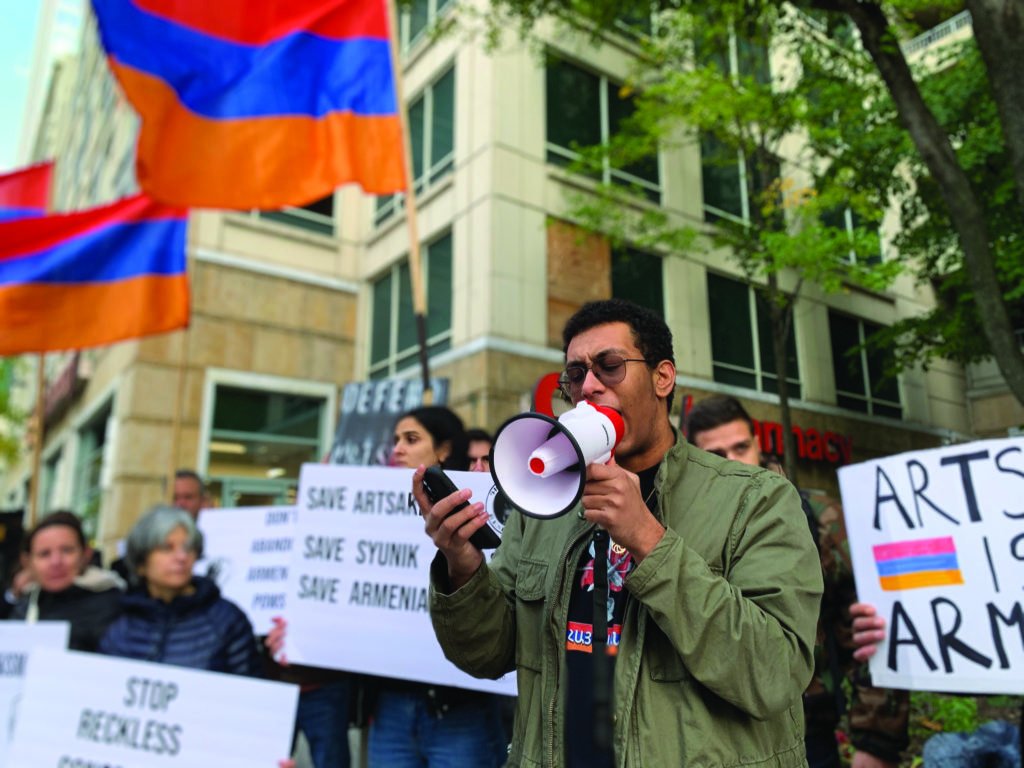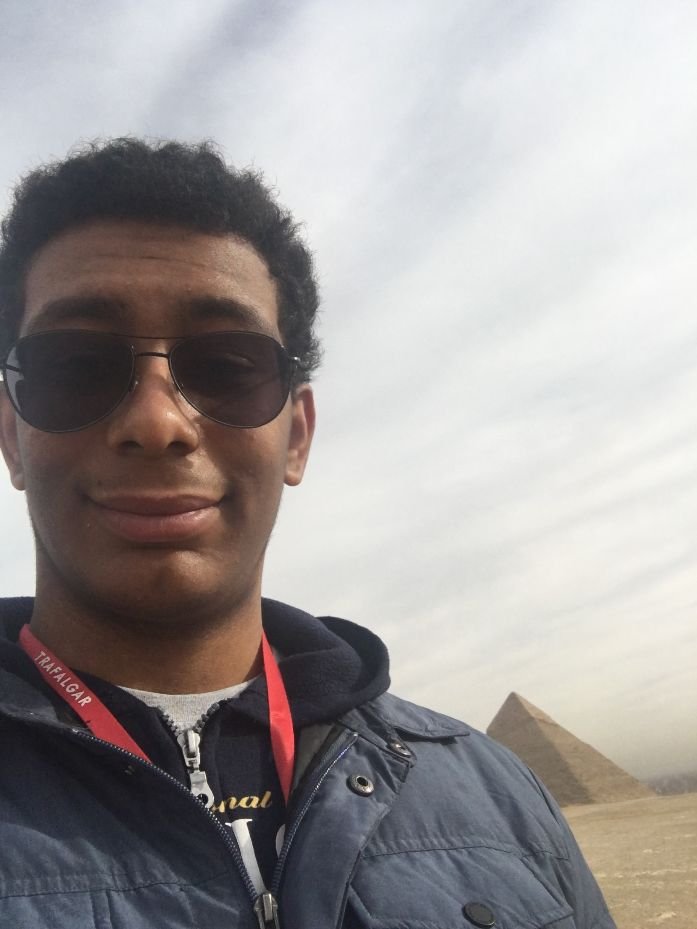
As the AYF-YOARF marks its 90th year, it becomes necessary not only to look back at the history of our organization, but more importantly, ponder its future. The culmination of this reflection is a single question: how can we improve our organization? Despite an impressive and storied history of Hai Tahd activities, it seems there are some who neglect that aspect of the AYF-YOARF’s core pillars in favor of appearing only at our social or athletic outings: kefs, dinners, dances, Olympics and so forth. While those events are important for cultural preservation and building camaraderie, Hai Tahd is just as, if not more, important than those activities.
Now with the Berdzor Corridor blocked for over a month and 120,000 Armenians deprived of access to food and medicine, our collective carefree spirit at a time like this is simply unconscionable.
Let’s think about how we approach the Artsakh Issue. The Diaspora sends funds, because we have become incapable of viewing ourselves as anything more than a bloated piggy-bank. But let us look at the hard truth: money will not open the road to Artsakh. Even the most useful action in the eyes of many – sending Armenian youth to Artsakh – cannot occur because our ability to enter the enclave is dependent upon the will of the Azerbaijanis.
So, what have we done to end the current blockade? We have called Congressional staffers while waiting for a lunch table at a nice restaurant, and we have even troubled ourselves to send some emails. We have held fundraisers for Artsakh, and the more ambitious among us have even staged a few small protests. Yet none of these activities have netted any positive effect on the current situation, and there is little to suggest that they ever will. The powers of the “civilized world” have answered our prayers and pleas with silence and indifference, just as they did in 1915, when our innocents were mercilessly slaughtered, and just as they did in the 1960s and early 1970s, when we begged for justice for those very same innocents. Therefore, now is the time to once again ask ourselves an important question: why won’t they listen?
If we accept, as many do, that our goal as Diasporans should be to raise awareness about our cause and to lobby, then let us do so in a manner that is effective. A small protest at the Azerbaijani Embassy or sheets with slogans hung on the embassy fence accomplish little in the face of our current struggle. However, an Azerbaijani or Turkish ambassador splashed with blood-colored paint does make headlines; interruption and disruption of a lecture by Azerbaijani propagandists on a university campus does make headlines; a dedicated group of Armenians staging a sit-in at a consulate does make headlines; a seven-day hunger strike does make headlines.
The world does not care about our plight because we have not made it unavoidable for them and because, in truth, we too have ceased to care. If our just cause is so easily dismissed by those in power, let them be forced to witness it every time they flick on the television or switch the channel. This is a reality far more frightening to the Turkish and Azeri fascist regimes than any of our current methods.
We have eaten and drunk our fill, but now is the time to do our share of the work. Now is the time to rededicate ourselves to the cause. Now is not the time to rely on ineffective means of creating change, but to alter our methods and think outside the box – to formulate a new modus operandi. What is to be done?
Hunger Strikes
Why should we lounge and indulge with full stomachs while the people of Artsakh go hungry? A public hunger strike outside government buildings (e.g., the White House, the Capitol, etc.) would compel the world to open its eyes to the horror of our current situation and recognize the level of our commitment. It would show that we will not be ignored and pushed to the side, that we are willing to give up our comfort and health (even if temporarily) for the freedom of Artsakh.
Picketing
Let us take a page out of the book of the American suffragist and labor movements by picketing. Picketing, a protest in which a group of individuals stand – often forming a human barricade – outside a building (usually workplace or political center), either draws attention to our cause, interferes with the affairs of the target building, or both. For instance, picketing the Capitol Building raises awareness about the crisis in Artsakh, while a picket outside the Azerbaijani or Turkish embassies hinders the ability of those institutions to go about business as usual.
Peaceful Occupations and Sit-Ins
Unlike the Armenian cause, which is organized around dedicated grassroots volunteers, the Turks and Azerbaijanis organize their political activities centrally, through their embassies, consulates and honorary consulates. The tactic of organizing embassy and consulate sit-ins was effective during protests in the 1980s against the scourge of South African apartheid. Now, the same may be necessary and useful against the Azerbaijani and Turkish governments, their paid lobbyists and those who receive funding from those governments.
Event Disruptions
When we discuss countering the efforts of the Turkish and Azerbaijani fascist states, we must first know their methods. For decades, the Turkish government (and increasingly, Azerbaijani government) has targeted college students with propaganda because top-tier universities are where the next generations of American political and business leaders, economists and diplomats are molded. Thus, Armenian students across the United States, facilitated by our organization, must form a revolutionary nucleus, rapidly mobilizing human resources for event disruptions. When an Azerbaijani ambassador is invited to speak at a university, the local AYF chapter should have at least half of its members ready to interrupt and force the cancellation of the lecture.
But time is running out, comrades. The enemy is not simply at our doorstep; it has crossed our threshold. We will not be able to protect our lands by methods agreeable to our comfortable Diasporan lifestyles, so let us be prepared to defend and liberate our lands by the most effective means possible. For over 30 years, we have been in a blind haze of partying and merriment. It is time to sober up.



Very well said Aram
Please let me start by stating that I am not of Turkish origin, nor do I remotely agree with the blockade / many Azeri tactics.
That being said, I am astounded that so many articles on this site keep boiling down to a deluded belief that the “West” is going to help via some kind of force against Azerbaijan. We are helping Ukraine with weapons, intelligence, training, etc against RUSSIA. Yet we won’t directly send troops, etc, for fear of aggravating that old Russian bear.
Armenia hosts a Russian military base. Armenia is in CSTO and EEU – both very much Russian-led alliances. Ukraine doesn’t have Russian bases, not in these Russian organizations, and even then help is (in my opinion) tragically limited. But we should take on Turkey and Russia over Artsakh? I realize Armenia is between a rock and a hard place (to put it mildly) but you can’t have your cake and eat it too. Armenia is firmly in Russia’s pocket – you want help? That’s the direction to look towards.
Finally, I agree with the author on most of the non-violent tactics, but strongly disagree with disrupting / forcing cancellation of events. Free speech must be protected, even if you don’t agree with it. Civility is crucial and in increasingly short supply – as seen in the many sneering, insult-filled comments I see on this site.
Excellent and inspiring. Thank you!!
As with just about every organization I have been in, Armenian and otherwise, there are many talkers, but very few action takers. Most people are afraid to get involved because it will hurt their resume. Imagine if the Armenian freedom fighters during the 1915 Genocide took that position? If you go through life as a goodie two-shoes, you have wasted that part of your heart and soul which God gave you to fight evil.